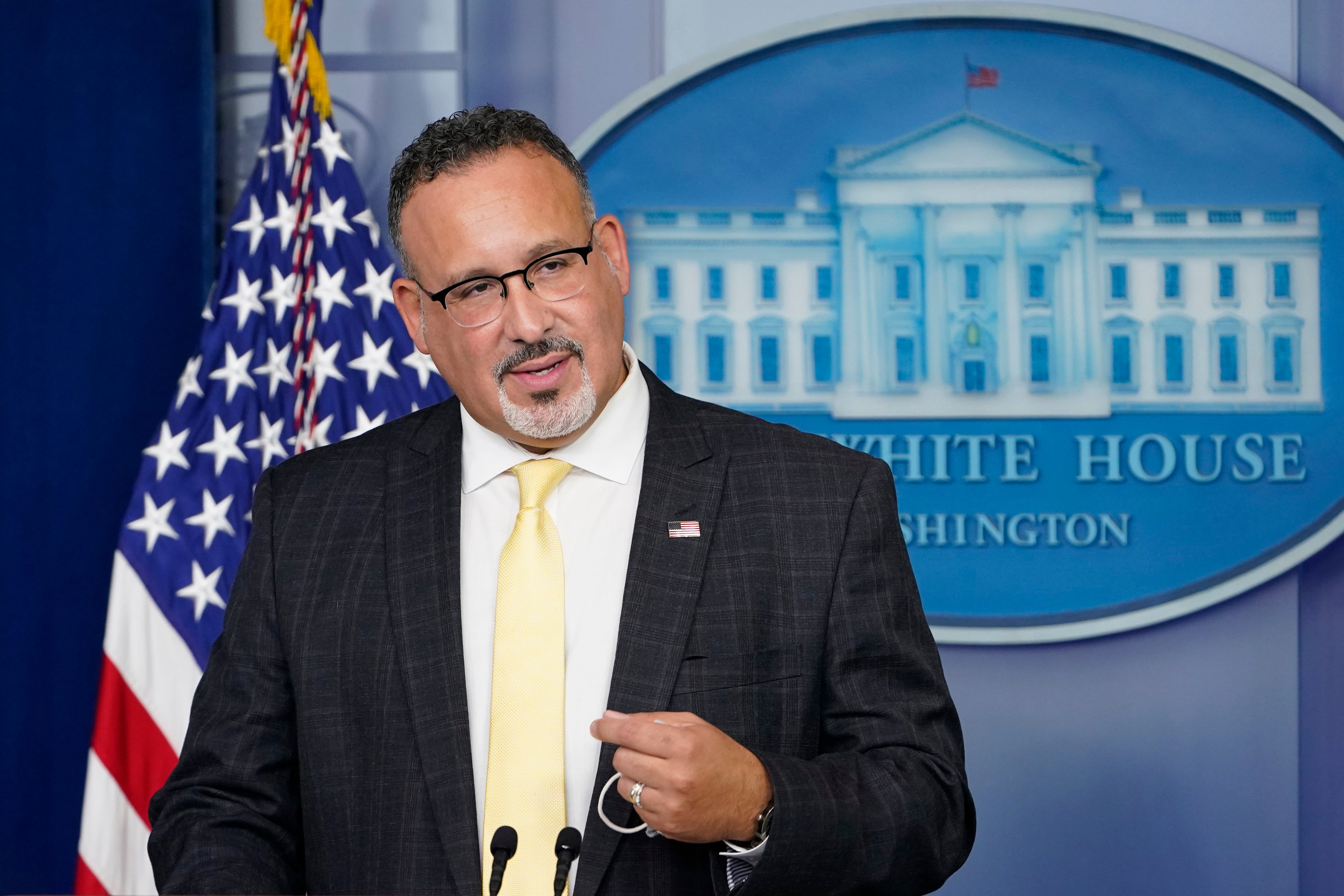Pause on student loan payments extended through January
The Biden administration has announced that federal student loan payments will remain suspended through January 2022, extending a pause that was scheduled to expire next month

Your support helps us to tell the story
From reproductive rights to climate change to Big Tech, The Independent is on the ground when the story is developing. Whether it's investigating the financials of Elon Musk's pro-Trump PAC or producing our latest documentary, 'The A Word', which shines a light on the American women fighting for reproductive rights, we know how important it is to parse out the facts from the messaging.
At such a critical moment in US history, we need reporters on the ground. Your donation allows us to keep sending journalists to speak to both sides of the story.
The Independent is trusted by Americans across the entire political spectrum. And unlike many other quality news outlets, we choose not to lock Americans out of our reporting and analysis with paywalls. We believe quality journalism should be available to everyone, paid for by those who can afford it.
Your support makes all the difference.The Biden administration on Friday announced that federal student loan payments will remain suspended through January 2022, extending a pause that began at the start of the pandemic and was scheduled to expire next month. The Education Department said this will be the final extension.
Borrowers will not have to make payments on federal student loans during the moratorium, interest rates will be set at 0% and debt collection efforts will remain on pause. The suspension will expire on Jan. 31, 2022.
Education Secretary Miguel Cardona said it’s meant to give borrowers enough time to prepare for their payments to resume.
“As our nation’s economy continues to recover from a deep hole, this final extension will give students and borrowers the time they need to plan for restart and ensure a smooth pathway back to repayment,” Cardona said in a statement.
The Trump administration suspended federal student loan payments in March 2020 and later extended them through January 2021. President Joe Biden soon after taking office, extended the pause through Sept. 30.
But even as the economy rebounds, there have been concerns that borrowers would not be ready to continue payments so soon. Democrats, including Senate Majority Leader Chuck Schumer N.Y., and Sen. Elizabeth Warren Mass., recently pressed Biden to extend the moratorium through at least March 2022.
Schumer, Warren and Rep. Ayanna Pressley D-Mass., applauded the extension in a joint statement Friday, saying it provides relief to millions of borrowers facing a “disastrous financial cliff.”
“The payment pause has saved the average borrower hundreds of dollars per month, allowing them to invest in their futures and support their families’ needs,” the Democrats said.
The Education Department itself has raised concerns about the administrative hurdles around suddenly restarting loan payments. In a November 2020 report, the department said it would be a “heavy burden” for the government and loan servicers.
In its Friday announcement, the Education Department said the final extension provides enough time to restart payments smoothly.
The extension drew criticism from conservatives including Rep. Virginia Foxx, the top Republican on the House Education and Labor Committee.
“I regret that Secretary Cardona did not show real leadership by working with Congress to transition responsibly the portfolio back into repayment by Oct. 1 of this year," Foxx said in a statement. “It is nothing less than a dereliction of duty.”
The Biden administration announced the relief as it faces mounting pressure from some Democrats to erase huge swaths of student debt. Schumer and Warren have urged Biden to use his authority to cancel $50,000 in student debt for all borrowers, saying it would jumpstart the economy and help families hit hard by the pandemic.
But Biden has questioned whether he has the authority for that kind of mass cancellation and has asked the Education and Justice departments to study the issue. The president has supported canceling up to $10,000 in student, but Biden says that should be done by Congress.